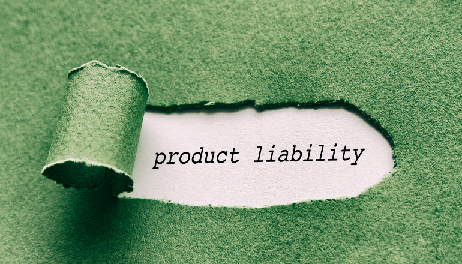We all know the feeling when you buy a product and it doesn’t perform as expected, or worse, causes harm. But who is ultimately responsible when consumers misuse products? Is it the company that sold the product or the consumer who bought it? This question has been debated for decades, with no clear answer in sight click here. In this blog post, we will explore the issue of consumer responsibility and how companies can protect themselves from liability when consumers misuse their products. Read on to learn more about what to consider when evaluating who is responsible for product misuse.
Companies are responsible for marketing their products in a way that is not misleading
When it comes to consumer protection, there is a lot of debate over who is responsible: the companies that make and sell products, or the consumers who use them. In most cases, it is the responsibility of both parties to ensure that products are used safely and as intended. However, when it comes to marketing, companies are solely responsible for ensuring that their products are not advertised in a way that is misleading or deceptive.
For example, let’s say a company makes a new type of cleaning product that they claim can be used on any surface without damaging it. However, after using the product, many consumers find that it scratches and damages surfaces. In this case, the company would be responsible for false advertising and would be liable for any damage caused by its product.
It is important to remember that companies have a duty to market their products truthfully and responsibly. When they fail to do so, they put consumers at risk of being misled and making purchase decisions that they may later regret.
If a company markets its product in a way that is misleading, the consumer is not responsible for the misuse of the product
When it comes to who is responsible for the misuse of a product, there are two schools of thought. On one hand, you have those who believe that the company that marketed the product is at fault. After all, if they had been truthful in their advertising, the consumer would never have bought the product in the first place. On the other hand, you have those who believe that the consumer is ultimately responsible for their own actions gambling with real money. If they had done their research before making a purchase, they would have known better than to trust the false claims made by the company.
So, who is really responsible when consumers misuse products? The answer may surprise you. In most cases, it is actually both the company and the consumer who are to blame. Here’s a closer look at why this is:
The company is responsible for creating misleading marketing materials. This could be anything from false claims about a product’s efficacy to using photoshopped images to make a product look better than it really is. When companies engage in these practices, they are knowingly deceiving consumers and should be held accountable for any damages that result.
The consumer is responsible for doing their research before making a purchase. With all of the information that’s readily available online these days, there’s no excuse for not being informed about what you’re buying. If you see an ad that looks too good to be true, chances are it probably is. Don
The government should regulate how companies market their products
It is no secret that marketing plays a big role in how successful a product is. But should the government step in and regulate how companies market their products? Is it the company’s responsibility to make sure consumers are using their products safely, or is it the consumer’s responsibility to educate themselves before using a product?
There are arguments to be made for both sides, but ultimately, it is the responsibility of the company to ensure that its products are being marketed responsibly. It is the company’s job to ensure that consumers are aware of the potential risks of using their products and to provide clear and accurate information about those risks. If a company fails to do this, then it is putting consumers at risk.
The government does have a role to play in regulating how companies market their products, but ultimately, it is the responsibility of the company to make sure its products are being marketed responsibly.
Companies should be transparent about the risks associated with their products
As a company, it is your responsibility to be transparent about the risks associated with your products. This means providing clear and concise information about the potential risks involved in using your product, as well as any precautions that should be taken. Failure to do so could result in serious injury or even death.
It is important to remember that consumers have a right to know what they are buying, and companies should not try to hide any potential dangers. If a company does not provide adequate warnings or information about the risks associated with its products, it could be held liable for any injuries or damages that occur as a result.
Consumers should be educated about the risks associated with products before they purchase them
There are a variety of risks that come with purchasing any product, and it is the responsibility of the consumer to be aware of these risks before making a purchase. However, many consumers are not adequately educated about the potential risks associated with products before they make a purchase, and as such, companies have a responsibility to ensure that consumers are made aware of these risks.
One of the most common risks associated with purchasing products is of faulty or dangerous products. In some cases, products may be defective and pose a risk to the consumer if used. In other cases, products may be safe when used as intended but may be dangerous if misused. It is important for consumers to be aware of both types of risks before making a purchase so that they can make an informed decision about whether or not to purchase the product.
Another risk associated with purchasing products is that of scams. There are many scams out there, and it can be difficult for consumers to spot them. Scammers often target people who are looking for deals on popular items, and they may offer fake discounts or free shipping in order to get people to purchase their products. Once again, it is important for consumers to be aware of this type of risk so that they do not become victims of scams.
Finally, another risk associated with purchasing products is that identity theft. When buying products online or through mail order, there is always the risk that personal and financial information could be stolen by someone who gains access to it




